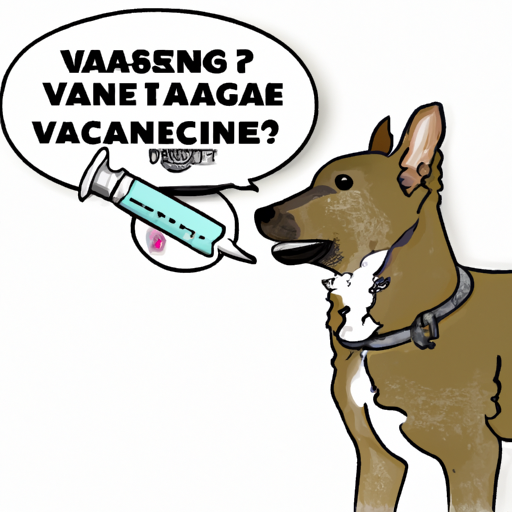Understanding Rabies
Rabies is a severe and often deadly disease caused by the rabies virus. It is primarily transmitted through the bite of a rabid animal.
As a caregiver, you understand the importance of protecting those in your care from harm. Your furry friends are no exception. They look up to you for their wellbeing, and you have the responsibility to ensure they’re safe from diseases like rabies.
Rabies in Dogs
In dogs, rabies can manifest in two forms: furious and paralytic.
- Furious rabies is the most common form. It’s characterized by hyperactivity, aggression, and a propensity to bite anything – including inanimate objects.
- Paralytic rabies, also known as ‘dumb’ rabies, is less common but equally deadly. Dogs affected by this form of rabies experience progressive paralysis and eventually death.
The Importance of Rabies Vaccination
Vaccination is the most effective way to prevent rabies. It not only protects your dog but also contributes to the overall effort to control and eventually eliminate this deadly disease.
Benefits of Rabies Vaccination
- Protects your dog from a deadly disease
- Reduces the risk of human exposure to rabies
- Contributes to the global effort to control and eliminate rabies
The Rabies Vaccine
There are several types of rabies vaccines available for dogs, including live attenuated, inactivated, and recombinant vaccines. Your vet can guide you on the most suitable type for your dog.
Common Rabies Vaccines for Dogs
| Vaccine Type | Duration of Immunity | Age of First Dose |
|---|---|---|
| Live attenuated | 3 years | 3 months |
| Inactivated | 1 year | 3 months |
| Recombinant | 1-3 years | 3 months |
Administering the Rabies Vaccine
The rabies vaccine is typically administered as an injection. The initial dose is given when the dog is three months old, followed by a booster one year later, and then every one to three years after that.
Steps to Administer Rabies Vaccine
- Consult with your vet about the right vaccine for your dog.
- Schedule the first dose when your dog is around three months old.
- Follow up with a booster shot one year after the first dose.
- Continue with regular boosters every one to three years.
Frequently Asked Questions
Why can’t puppies under three months get the rabies vaccine?
The immune systems of very young puppies may not respond fully to the vaccine. It’s best to wait until they are three months old.
Can my dog get rabies after vaccination?
While extremely rare, it is technically possible. However, the vaccine dramatically reduces the risk.
What are the side effects of the rabies vaccine in dogs?
Most dogs show no adverse reaction. Some may experience temporary side effects like soreness at the injection site, mild fever, or decreased appetite.
Does my indoor dog need a rabies shot?
Yes, all dogs should be vaccinated against rabies. Even indoor dogs can come into contact with rabid bats or other animals that have found their way inside.
By ensuring your dog is vaccinated against rabies, you are not only protecting them from a deadly disease, but also contributing to a safer community.



